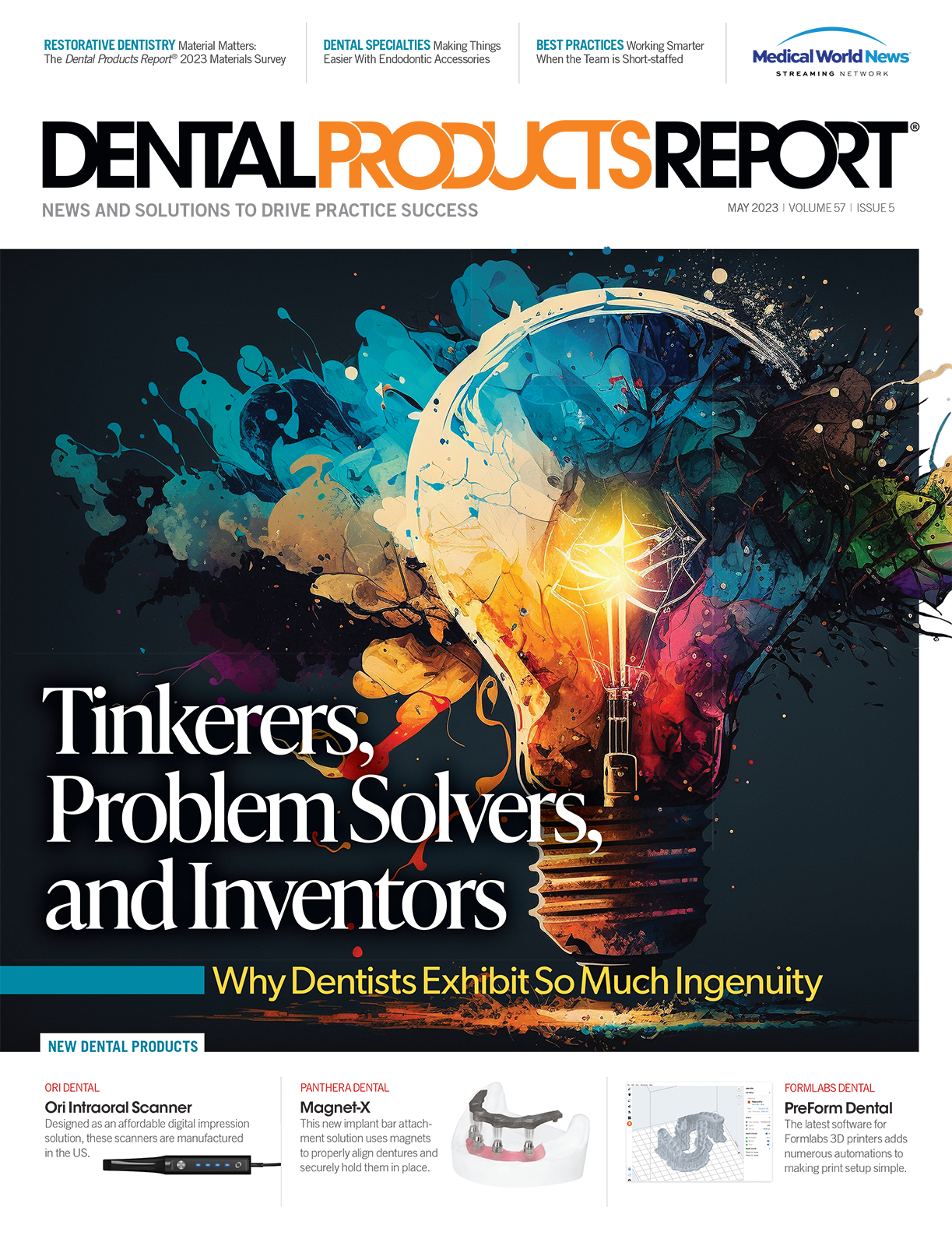Working Smarter When the Team Is Short-staffed
In this column, designed to help connect providers with some of the most practical ideas from their colleagues, consultants, and other dental experts, the author talks with Sam Bakuri, DMD, MSD, and Carrie Webber.
PATHDOC / STOCK.ADOBE.COM

Having worked in a successful practice, I know how important time is. If you’re understaffed, time management becomes one of the most critical challenges your team has. Today, we’re talking about ways your team can work smarter—not harder.
According to a recent Economic Outlook and Emerging Issues in Dentistry study1 by the American Dental Association Health Policy Institute, one-third of dentists continue to report that they are actively recruiting dental hygienists and assistants, and 24% are looking for administrative staff. Even if you are fully staffed, last-minute sick days can throw a curve ball into practice operations.
I asked my colleagues Sam Bakuri, DMD, MSD, and Carrie Webber this question: If the goal is to deliver quality patient care and an exceptional patient experience, how can that be done when there’s not enough staff or time to get everything done? Dr Bakuri is the owner of Greater Pittsburgh Dental Implants and Periodontics in Allison Park, Pennsylvania, and Webber is the owner of Jameson Management and one of dentistry’s brightest coaches and consultants.
Their answers? Look at your systems and invest in team training.
Dr Bakuri: There are 2 kinds of dental offices: those that have efficient [staff] who run the office systems, and those that have efficient systems that consistently produce efficient workers. It’s easy to see the latter is a sustainable model that will enable both the practice and its employees to thrive. On the other hand, offices that don’t have efficient systems will consistently struggle when they have turnover, lose an employee or even have a new team member they are trying to onboard. The reality is [that] even your most loyal team members may have unexpected situations that come up, which requires them to leave your practice. In contrast, efficient systems become the foundation and actual training method to create great team members.
Webber: Focus on training, culture, and simplification. It is important that there are clear roles in place and that team members fully understand their responsibilities and [are] trained to execute them consistently. When things get busy or the practice is short-staffed, it’s important that the team have an attitude of ownership and is ready and willing to help carry the load. Teams should look for ways to minimize the time needed to manage tasks by simplifying.
Tap Into Technology and Training
It can be difficult to make process changes or invest time in team training when it’s a struggle just to get the daily tasks done. Optimizing technology is one way to accomplish creating efficient systems. Leaning into resources available from the practice’s partners, such as CareCredit, can also help.
Most practices have practice management software but may not be fully utilizing its functionality, which was probably designed to save them time and reduce human error. Having a conversation with your software partner may uncover easy-to-use applications within the software that can be implemented with minimal training.
CareCredit leverages technology to provide several options that enable patients to learn about the CareCredit credit card, see if they prequalify with no impact to their credit score and apply, making it easy for dental teams to use CareCredit in a way that best fits their systems and processes.
1. Software integrations. CareCredit is integrated into most practice management software. The integration allows users to quickly access client account information and easily process application and transactions without having to leave their software system.
2. QR code. Patients can use their smartphone to scan the QR code to learn about and apply for CareCredit on their own, saving the team time and enabling patients to keep their financial information private.
3. Custom link. With a simple click of a button patients can apply while on your website using their computer, laptop, smartphone or preferred device.
All of these options are designed to provide a seamless, easy financial experience that saves your team time, which as we mentioned, is one of your most critical resources. My 2 colleagues agree:
Webber: Time is definitely a finite resource. We only get so many hours and minutes in a day. It’s important to remember to focus our time and efforts on those things that impact patient care and satisfaction.
Dr Bakuri: Processes are important. But at the end of the day caring for patients is the most important thing we do. When short staffed, minimize anything that takes time and focus away from establishing trust and human connection.
Reference
1. American Dental Association Health Policy Institute. Economic outlook and emerging issues in dentistry. February 2023. Accessed March 24, 2023. https://www.ada.org/-/media/project/ada-organization/ada/ada-org/files/resources/research/hpi/feb2023_hpi_economic_outlook_dentistry_slides_2023.pdf

How Dentists Can Help Patients Navigate Unforeseen Dental Care
December 12th 2024Practices must equip patients with treatment information and discuss potential financing options before unexpected dental treatments become too big of an obstacle and to help them avoid the risk of more costly and invasive procedures in the future.